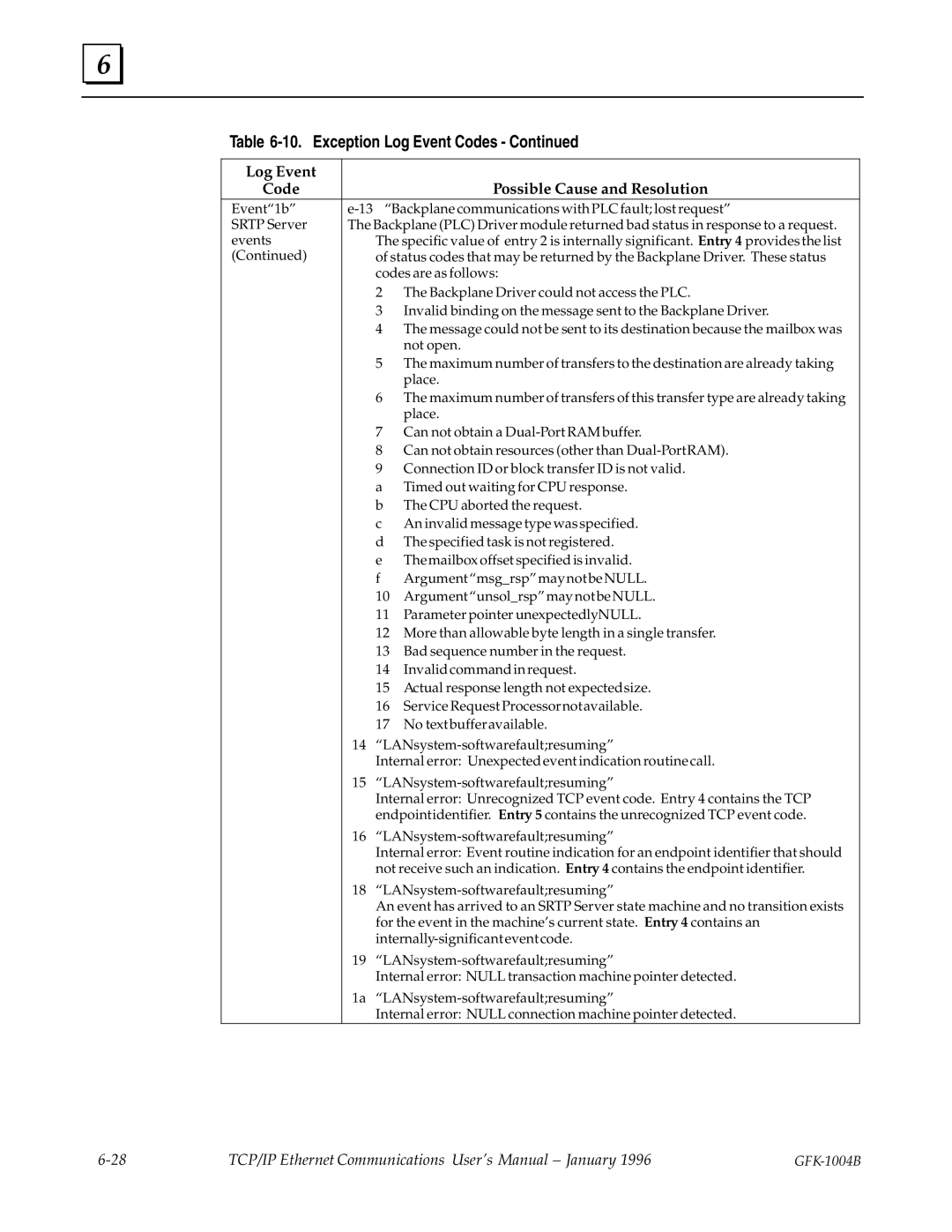
6 |
Table 6-10. Exception Log Event Codes - Continued
Log Event |
|
Code | Possible Cause and Resolution |
Eventª1bº | |
SRTP Server | The Backplane (PLC) Driver module returned bad status in response to a request. |
events | The specific value of entry 2 is internally significant. Entry 4 provides the list |
(Continued) | of status codes that may be returned by the Backplane Driver. These status |
| codes are as follows: |
2The Backplane Driver could not access the PLC.
3Invalid binding on the message sent to the Backplane Driver.
4The message could not be sent to its destination because the mailbox was not open.
5The maximum number of transfers to the destination are already taking place.
6The maximum number of transfers of this transfer type are already taking place.
7Can not obtain a
8Can not obtain resources (other than
9Connection ID or block transfer ID is not valid.
aTimed out waiting for CPU response.
bThe CPU aborted the request.
cAn invalid message type was specified.
dThe specified task is not registered.
eThemailbox offset specified is invalid.
fArgumentªmsg_rspºmaynotbeNULL.
10 Argumentªunsol_rspºmaynotbeNULL.
11 Parameter pointer unexpectedlyNULL.
12 More than allowable byte length in a single transfer. 13 Bad sequence number in the request.
14 Invalid command in request.
15 Actual response length not expectedsize.
16 Service Request Processornotavailable.
17 No textbufferavailable.
14
Internal error: Unexpected event indication routine call.
15
Internal error: Unrecognized TCP event code. Entry 4 contains the TCP endpointidentifier. Entry 5 contains the unrecognized TCP event code.
16
Internal error: Event routine indication for an endpoint identifier that should not receive such an indication. Entry 4 contains the endpoint identifier.
18
An event has arrived to an SRTP Server state machine and no transition exists for the event in the machine's current state. Entry 4 contains an
19
Internal error: NULL transaction machine pointer detected.
1a
Internal error: NULL connection machine pointer detected.
TCP/IP Ethernet Communications User's Manual ± January 1996 |
|
